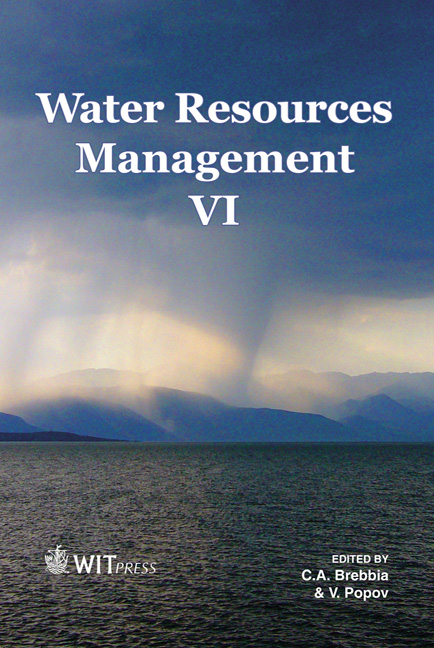Effect Of Water Scarcity On Groundwater Use Efficiency In The Rice Sector Of Karnataka: A Case Study
Price
Free (open access)
Transaction
Volume
145
Pages
9
Page Range
783 - 791
Published
2011
Size
473 kb
Paper DOI
10.2495/WRM110701
Copyright
WIT Press
Author(s)
S. Korattukudy Varghese, P. Chellattan Veettil, J. Buysse, S. Speelman, A. Frija & G. Van Huylenbroeck
Abstract
Scarcity of a resource is proven to cause prudent and efficient use in many cases. This is contradicted in other studies where common property resource is shown as heavily abstracted in the face of scarcity. Our paper provides a field level examination of the ground water scarcity–use efficiency nexus using causal inference theory. We use data from villages of Madhugiri, Karnataka where groundwater is increasingly becoming a scarce resource. Groundwater Use Efficiency (GWUE) scores are calculated using the concept of sub-vector efficiency in Data Envelopment Analysis. The inefficiencies are then traced to the farm level scarcity indicators using Inverse Probability Weighting method. We use farm level proxies as scarcity indicators such as the age of irrigation! wells, irrigation investment cost and number of wells at farm level. Our study finds that water scarcity affects the GWUE negatively when conditioned on other confounders pointing to higher abstraction behavior in the face of scarcity. This result indicates that maintaining water availability levels at farm level would help in improving GWUE scores. Keywords: scarcity, groundwater use efficiency, South India, rice farming. 1 Introduction In the context of the increasing global water supply-demand mismatch, stakeholders and policy makers are increasingly interested in improving the efficiency of every drop of groundwater extracted and used. Considering the consumptive nature of agricultural water use and the sheer volume of groundwater used for agriculture, it is imperative that Groundwater Use
Keywords
scarcity, groundwater use efficiency, South India, rice farming





